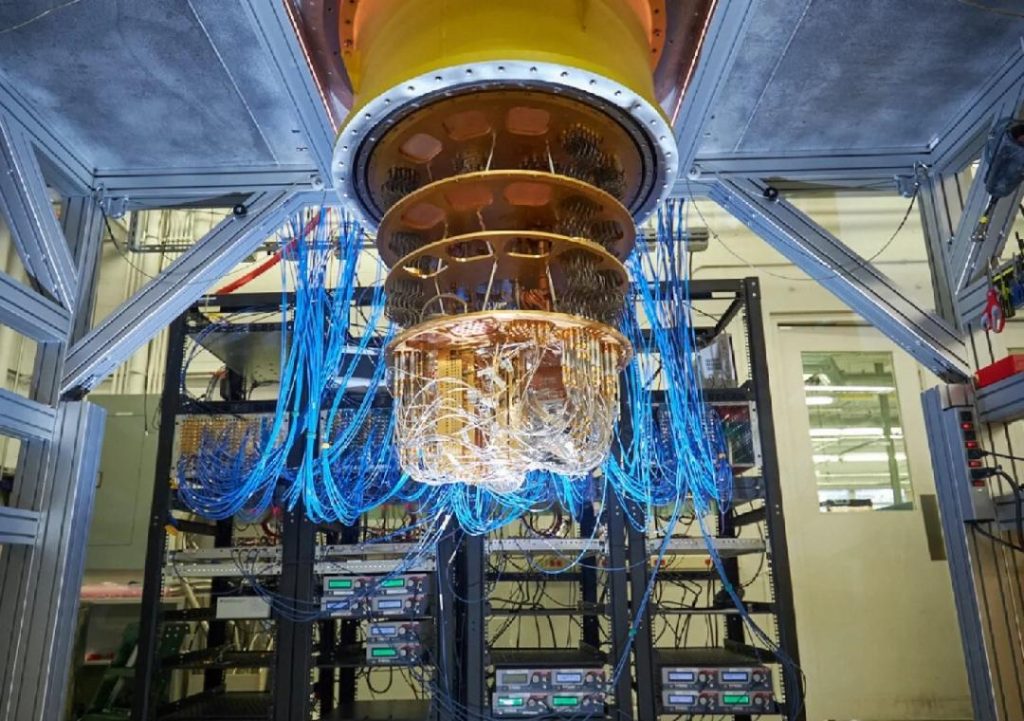
What Makes Quantum Computers So Fast?
In today’s digital age, speed is everything. Whether it’s processing transactions, analyzing data, or solving complex problems, the faster the better. This is where classical computers come in, processing information in a binary format of 0s and 1s, one at a time. However, quantum computers are a different beast altogether. They use a unique property called superposition, which allows them to explore multiple outcomes at once, making them incredibly fast.
In this blog post, we’ll dive into the world of quantum computers, exploring what makes them so fast and how this technology is revolutionizing industries like finance.
Classical Computers: A Binary Approach
Classical computers, also known as traditional computers, use a binary system to process information. This means they use 0s and 1s to represent data, with each bit being processed individually. This approach is like following a recipe, where each ingredient is added one at a time to create the final dish. The computer follows a specific set of instructions, processing each bit of information in sequence.
While this approach works well for most tasks, it has its limitations. As the complexity of a problem increases, classical computers can become slow and inefficient. This is because they are limited to processing one piece of information at a time, which can lead to bottlenecks and slow down the overall processing time.
Quantum Computers: A New Approach
Quantum computers, on the other hand, use a different approach. They are based on the principles of quantum mechanics, which allows them to process information in a unique way. Quantum computers use something called qubits (quantum bits), which are the fundamental units of quantum information.
Qubits are special because they can exist in multiple states simultaneously, unlike classical bits which can only be 0 or 1. This property is known as superposition. In superposition, a qubit can be both 0 and 1 at the same time, which allows quantum computers to explore multiple outcomes simultaneously.
Think of it like a coin flip. In classical physics, a coin can either be heads or tails, but not both at the same time. However, in quantum mechanics, a coin can exist in a superposition state, where it’s both heads and tails at the same time. This allows quantum computers to process multiple possibilities simultaneously, which can lead to massive parallel computation.
The Power of Superposition
So, what does this mean for quantum computers? The power of superposition allows them to explore multiple outcomes at once, which can lead to incredible speeds. Imagine being able to calculate the trajectory of a projectile simultaneously for multiple scenarios, or solving a complex equation in a fraction of the time it would take a classical computer.
In the world of finance, this means that quantum computers can perform tasks like fraud detection, risk analysis, and portfolio optimization in seconds, rather than hours or days. This can lead to significant improvements in operational efficiency, reduced costs, and increased accuracy.
Applications in Fintech
The potential applications of quantum computers in fintech are vast and varied. Here are a few examples:
- Fraud Detection: Quantum computers can quickly identify and detect fraudulent transactions, reducing the risk of financial losses.
- Risk Analysis: Quantum computers can analyze complex financial data to identify potential risks and opportunities, allowing for more informed investment decisions.
- Portfolio Optimization: Quantum computers can optimize investment portfolios by quickly analyzing large amounts of data and identifying the best investment strategies.
- Cryptography: Quantum computers can crack complex encryption codes, making it possible to securely transmit sensitive financial information.
The Future of Quantum Computing in Fintech
As the technology continues to evolve, we can expect to see even more innovative applications of quantum computing in fintech. From secure communication networks to advanced risk management systems, the possibilities are endless.
However, there are still significant challenges to overcome before quantum computers can be widely adopted. These include the need for more powerful and reliable quantum processors, as well as the development of more sophisticated software and algorithms.
Conclusion
Quantum computers are revolutionizing the world of fintech, offering unprecedented speeds and capabilities. The power of superposition allows them to explore multiple outcomes at once, making them incredibly fast and efficient.
As the technology continues to evolve, we can expect to see even more innovative applications of quantum computing in fintech. Whether it’s fraud detection, risk analysis, or portfolio optimization, quantum computers are poised to make a significant impact in the financial industry.
Learn more about the future of quantum computing in fintech by reading our latest blog post, “Quantum Computing in Fintech: The Future of Financial Services.”
News Source:
https://www.growthjockey.com/blogs/quantum-computing-in-fintech






